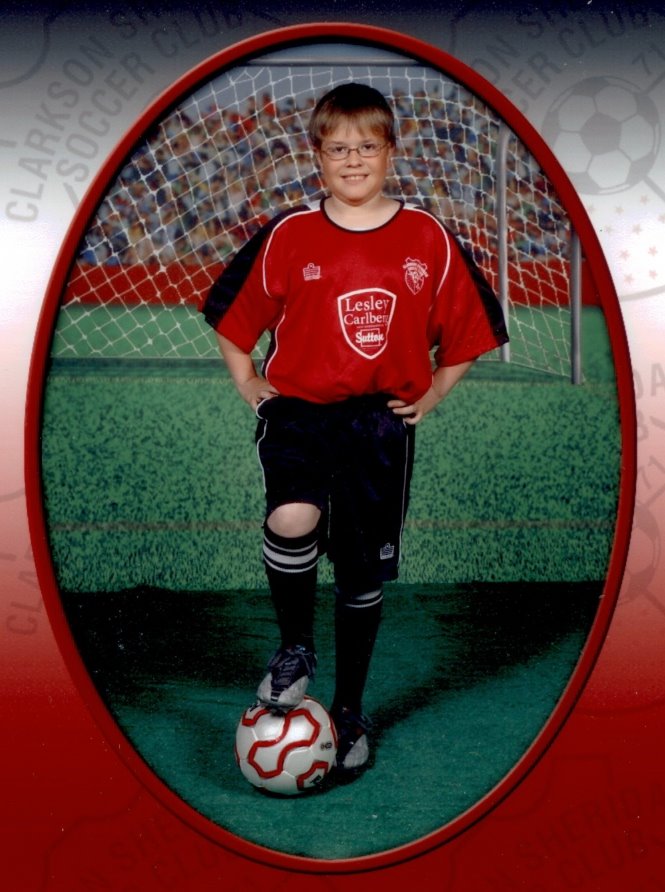OK all you finance and legal professionals who read this (you know who you are):
Listening to an interesting piece on credit derivatives from The Economist. The suggestion, which I think I agree with, is that there's nothing inherently wrong with credit default swaps and other forms of derivatives, but that people have radically underestimated the counterparty risk (a la AIG) and that causes the dangers that we're experiencing now. The fix is to require a central clearing house, similar to a stock market, which spreads that risk - this all makes sense to me.
But if that works, why do we not extend that concept to every form of contract? That is, if there's an inherent problem with bilateral or multilateral risks arising from contracts, then why don't we force all contracts to be pooled? Examples: if I'm afraid to buy a GM car because I don't think GM's going to be around to honour the warranty, isn't the answer that warranty contracts only be issued through a central clearing house of all automobile suppliers and spread that risk? Similar arguments could be made for things like multi-year cellphone contracts. Why do we think credit derivatives (or securities generally) are special in this regard?
Saturday, November 15, 2008
Friday, November 14, 2008
Juxtaposition
Just sayin'.
Case 1:
Justice Harry LaForme broke his silence on Thursday over his sudden resignation last month from the commission into Indian Residential School abuse, saying his "moral code" gave him no choice but to leave after his authority was undermined.
LaForme, who is aboriginal, resigned as the chairman of the Indian Residential School Truth and Reconciliation Commission on Oct. 20 in a letter to Indian Affairs Minister Chuck Strahl, less than six months into his mandate.
The Ontario Court of Appeal judge has not granted any interviews since his resignation, but he spoke about the decision for the first time in a speech that was part of a series of ethics lectures in Toronto's Ryerson University.
In his resignation letter, LaForme said the commission was on the verge of paralysis and doomed to failure. He cited an "incurable problem" with the other two commissioners, Claudette Dumont-Smith and Jane Brewin Morley, whom he said refused to accept his authority as chair and were disrespectful.
Speaking Thursday, LaForme said:
"I could not abdicate or surrender my dreams and visions about the truth and reconciliation commission to the two others — indeed, to two others who are relative strangers to me and to the historical and complex relationship that exists between aboriginal people and other peoples of Canada."
LaForme outlined how he and the two commissioners were given a framework for the commission that detailed their mandates.
"Assurances were given to me that it would be me and my vision that would chart, lead and direct the course of this very important and much-needed commission," he said.
"Thus, everyone knew, or certainly ought to have known, what the respective roles were to be."
Other commissioners disagreed
Laforme said that within months, however, that understanding changed. The two other commissioners felt that Laforme should not be above them and that all three should have equal authority. Laforme said Phil Fontaine, the national chief of the Assembly of First Nations, also shared that view.
"Indeed, the two commissioners believed this with such sincerity that they retained a lawyer, who, in turn, presumably on their instructions, wanted me to execute a document that acknowledged my agreement with their position," he said. "My moral code dictated that I could not agree."
His voice often breaking, LaForme then spent the next half hour describing his moral code. He talked about tough times as a youngster on an Ontario reserve, overcoming violence and his father's alcoholism.
LaForme went on to complete an engineering degree and finish law school. He was appointed to the bench in 1994, but even there, he said, he faced racism and allegations that his was a token appointment.
"My moral code includes that I must be always mindful of what it means to be marginalized and ignored, to have despair and no hope," he said.
"I must remember how deafening the forced silence by another on another can be."
He left the stage with tears in his eyes and was embraced by his wife, who was crying.
Case 2:
Let me tell ya something. Nowadays, everybody's gotta go to shrinks, and counselors, and go on "Sally Jessy Raphael" and talk about their problems. What happened to Gary Cooper? The strong, silent type. That was an American. He wasn't in touch with his feelings. He just did what he had to do. See, what they didn't know was once they got Gary Cooper in touch with his feelings that they wouldn't be able to shut him up! And then it's dysfunction this, and dysfunction that, and dysfunction ma fangul!
Case 1:
Justice Harry LaForme broke his silence on Thursday over his sudden resignation last month from the commission into Indian Residential School abuse, saying his "moral code" gave him no choice but to leave after his authority was undermined.
LaForme, who is aboriginal, resigned as the chairman of the Indian Residential School Truth and Reconciliation Commission on Oct. 20 in a letter to Indian Affairs Minister Chuck Strahl, less than six months into his mandate.
The Ontario Court of Appeal judge has not granted any interviews since his resignation, but he spoke about the decision for the first time in a speech that was part of a series of ethics lectures in Toronto's Ryerson University.
In his resignation letter, LaForme said the commission was on the verge of paralysis and doomed to failure. He cited an "incurable problem" with the other two commissioners, Claudette Dumont-Smith and Jane Brewin Morley, whom he said refused to accept his authority as chair and were disrespectful.
Speaking Thursday, LaForme said:
"I could not abdicate or surrender my dreams and visions about the truth and reconciliation commission to the two others — indeed, to two others who are relative strangers to me and to the historical and complex relationship that exists between aboriginal people and other peoples of Canada."
LaForme outlined how he and the two commissioners were given a framework for the commission that detailed their mandates.
"Assurances were given to me that it would be me and my vision that would chart, lead and direct the course of this very important and much-needed commission," he said.
"Thus, everyone knew, or certainly ought to have known, what the respective roles were to be."
Other commissioners disagreed
Laforme said that within months, however, that understanding changed. The two other commissioners felt that Laforme should not be above them and that all three should have equal authority. Laforme said Phil Fontaine, the national chief of the Assembly of First Nations, also shared that view.
"Indeed, the two commissioners believed this with such sincerity that they retained a lawyer, who, in turn, presumably on their instructions, wanted me to execute a document that acknowledged my agreement with their position," he said. "My moral code dictated that I could not agree."
His voice often breaking, LaForme then spent the next half hour describing his moral code. He talked about tough times as a youngster on an Ontario reserve, overcoming violence and his father's alcoholism.
LaForme went on to complete an engineering degree and finish law school. He was appointed to the bench in 1994, but even there, he said, he faced racism and allegations that his was a token appointment.
"My moral code includes that I must be always mindful of what it means to be marginalized and ignored, to have despair and no hope," he said.
"I must remember how deafening the forced silence by another on another can be."
He left the stage with tears in his eyes and was embraced by his wife, who was crying.
Case 2:
Let me tell ya something. Nowadays, everybody's gotta go to shrinks, and counselors, and go on "Sally Jessy Raphael" and talk about their problems. What happened to Gary Cooper? The strong, silent type. That was an American. He wasn't in touch with his feelings. He just did what he had to do. See, what they didn't know was once they got Gary Cooper in touch with his feelings that they wouldn't be able to shut him up! And then it's dysfunction this, and dysfunction that, and dysfunction ma fangul!
Subscribe to:
Posts (Atom)


